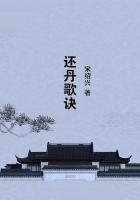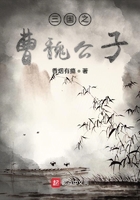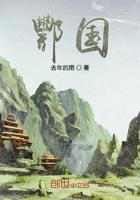Greece made its entry into history, as far back as the heroic epoch, with a system of social estates which itself was evidently the product of a long but unknown prehistory; even there, however, the land was mainly cultivated by independent peasants; the larger estates of the nobles and tribal chiefs were the exception; moreover they disappeared soon after. Italy was brought under cultivation chiefly by peasants; when, in the final period of the Roman Republic, the great complexes of estates, the latifundia, displaced the small peasants and replaced them with slaves, they also replaced tillage with stockraising, and, as Pliny already realised, brought Italy to ruin ( latifundia Italiam perdidere). During the Middle Ages, peasant farming was predominant throughout Europe (especially in bringing virgin soil into cultivation); and in relation to the question we are now considering it is of no importance whether these peasants had to pay dues, and if so what dues, to any feudal lords. The colonists from Friesland, Lower Saxony, Flanders and the Lower Rhine, who brought under cultivation the land east of the Elbe which had been wrested. from the Slavs, did this as free peasants under very favourable quit-rent tenures, and not at all under "some form of corvée" {D. C. 18}. -- In North America, by far the largest portion of the land was opened for cultivation by the labour of free farmers, while the big landlords of the South, with their slaves and their rapacious tilling of the land, exhausted the soil until it could grow only firs, so that the cultivation of cotton was forced further and further west. In Australia and New Zealand, all attempts of the British government to establish artificially a landed aristocracy came to nothing. In short, if we except the tropical and subtropical colonies, where the climate makes agricultural labour impossible for Europeans, the big landlord who subjugates nature by means of his slaves or serfs and brings the land under cultivation proves to be a pure figment of the imagination. The very reverse is the case. Where he makes his appearance in antiquity, as in Italy, he does not bring wasteland into cultivation, but transforms arable land brought under cultivation by peasants into stock pastures, depopulating and ruining whole countries. Only in a more recent period, when the increasing density of population had raised the value of land, and particularly since the development of agricultural science had made even poorer land more cultivable -- it is only from this period that large landowners began to participate on an extensive scale in bringing wasteland and grass-land under cultivation -- and this mainly through the robbery of common land from the peasants, both in England and in Germany.
But there was another side even to this. For every acre of common land which the large landowners brought into cultivation in England, they transformed at least three acres of arable land in Scotland into sheep-runs and eventually even into mere big-game hunting-grounds.
We are concerned here only with Herr Dühring's assertion that the bringing into cultivation of tracts of land of considerable size and therefore of practically the whole area now cultivated, "never and nowhere" took place except through the agency of big landlords and their bondmen -- an assertion which, as we have seen, "presupposes" a really unprecedented ignorance of history. It is not necessary, therefore, for us to examine here either to what extent, at different periods, areas which were already made entirely or mainly cultivable were cultivated by slaves (as in the hey-day of Greece) or serfs (as in the manors of the Middle Ages); or what was the social function of the large landowners at various periods.
And after Herr Dühring has shown us this masterpiece of the imagination -- in which we do not know whether the conjuring trick of deduction or the falsification of history is more to be admired -- he exclaims triumphantly:
"It goes without saying that all other types of distributive wealth must be explained historically in similar manner !" {19.}
Which of course saves him the trouble of wasting even a single word more on the origin, for example, of capital.
If, with his domination of man by man as a prior condition for the domination of nature by man, Herr Dühring only wanted to state in a general way that the whole of our present economic order, the level of development now attained by agriculture and industry, is the result of a social history which evolved in class antagonisms, in relationships of domination and subjection, he is saying something which long ago, ever since the Communist Manifesto , became a commonplace. But the question at issue is how we are to explain the origin of classes and relations based on domination, and if Herr Dühring's only answer is the one word "force", we are left exactly where we were at the start. The mere fact that the ruled and exploited have at all times been far more numerous than the rulers and the exploiters, and that therefore it is in the hands of the former that the real force has reposed, is enough to demonstrate the absurdity of the whole force theory. The relationships based on domination and subjection have therefore still to be explained.
They arose in two ways.
As men originally made their exit from the animal world -- in the narrower sense of the term -- so they made their entry into history:















